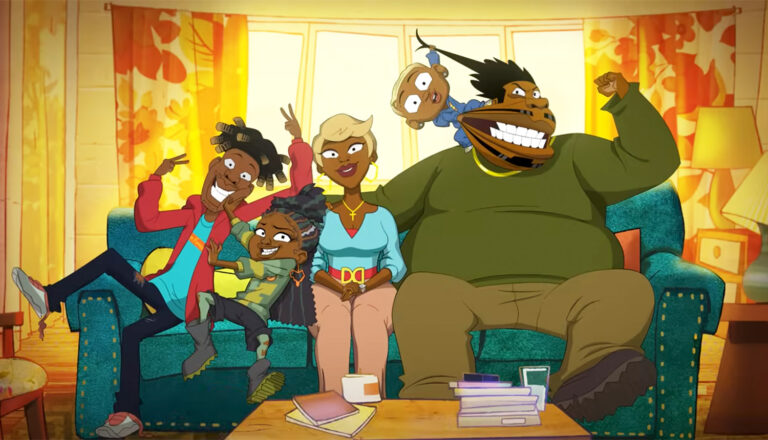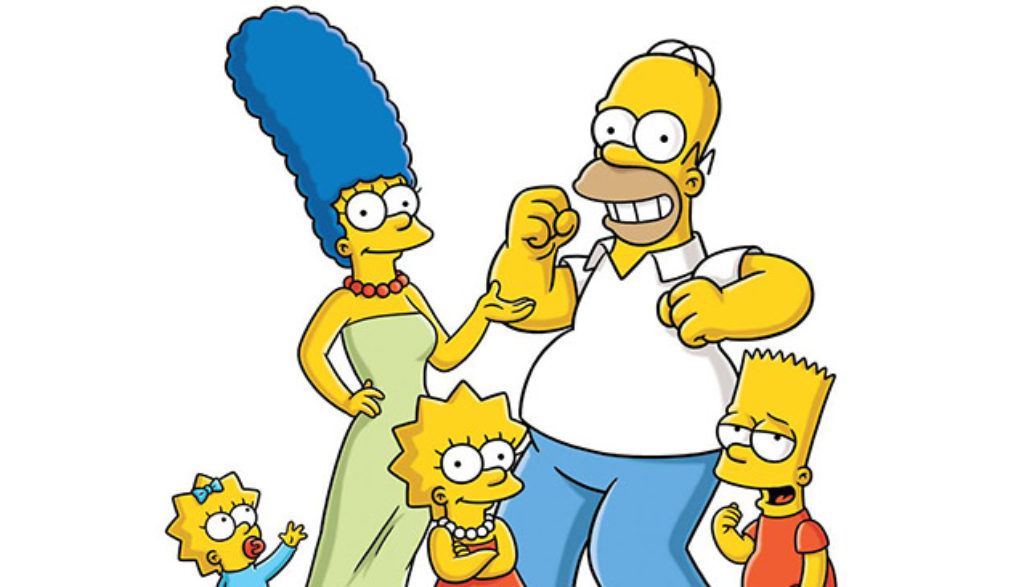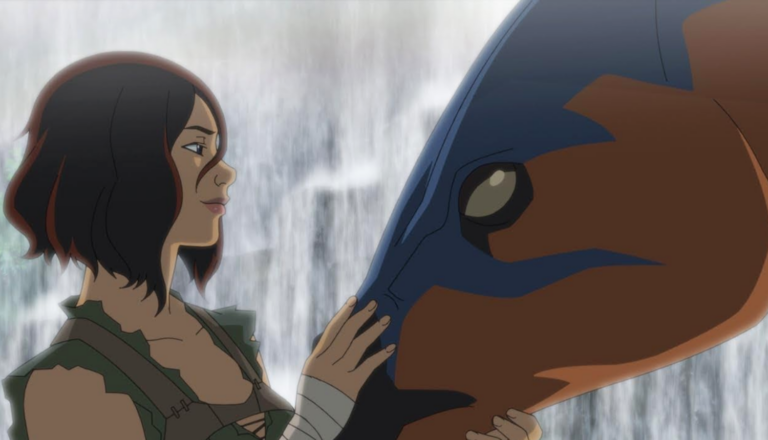
Good Times
Netflix takes a classic sitcom, Good Times, and turns it into a vulgar, violent, sexually-charged TV-MA show.

My 23-year-old son has never known a world without The Simpsons.
Fox’s landmark animated show, which snagged its own half-hour sitcom slot back in 1989, has spoofed four sitting presidents, spanned 12 Olympics (summer and winter) and survived 25 “Treehouse of Horror” Halloween specials. It predates the World Wide Web, a united Germany and Forrest Gump. It has given us the Oxford English Dictionary-approved interjection D’oh! while peddling literally billions of dollars of merchandise. It is now the longest-running scripted primetime series in American history, outliving even Gunsmoke and Lassie.
Here’s what all that means: The Simpsons has been around a long time—so long, in fact, that this review may not be able to tell you anything you didn’t already know about this show. You’ve probably already made up your mind about Homer, Marge, Bart, Lisa and Maggie. Either you watch (and consider The Simpsons to be a cogent, witty and surprisingly warmhearted satire of the American condition) or you don’t (and think the cartoon is crass, lewd and morally impaired).
To both camps, we have this to say: We couldn’t agree more. [*Insert asterisk here.]
Whatever you think about The Simpsons, there’s no question it’s become an indelible part of American culture—perhaps because in all its paradoxes, it resembles America itself. It’s rebellious and conservative, wayward and moral, both woefully corrupt and whimsically cool. The Simpsons is like a funhouse mirror that may distort who we are, but there’s enough of a resemblance that we instantly recognize ourselves in its crudely animated outlines.
In the beginning, parents and pundits lambasted the show for its crude humor and lack of viable role models—while T-shirts featuring the grinning visage of Bart and the words “underachiever and proud of it” blanketed the country. The Simpsons was the family no one wanted to be but secretly wanted to visit, if only for a vacation from themselves. Their show for many (including a fledgling entertainment-review publication that would soon be called Plugged In) was both a symptom and a cause of a steep decline in our culture. Others thought, “It’s about time we all loosened up a bit!”
Underneath it all, something else was happening. Homer and his clan, for all their many, many faults, loved and cared for one another—and still do. In some ways, now in the second decade of a new century, they seem almost counterculturally old-fashioned. As our world tries to now decide if family—any sort of family—is needed at all, Springfield’s first fam holds together, never minding the pressures of school, work, politics, media and the occasional natural (or unnatural) disaster. Indeed, Homer and Marge have stuck it out for better than three decades through thick and thin, sickness and health, high hair and no hair.
Indeed, this bright-yellow family of five, for some Americans, has become shorthand for the nuclear family.
But now we must come back to that asterisk inserted above. Because those Simpsons are nuclear in more ways than one—and not just because Homer sometimes comes home from work with radioactive trinkets in his pockets. Their show is still (and increasingly so) edgy, rebellious, lewd and crude. Homer is one of the worst dads … ever. Bart’s loud and proud when it comes to underachieving. Sexual double entendres scatter out across Springfield like so much fallout. Over-the-top animated violence and gore doesn’t restrict itself to just the embedded Itchy & Scratchy Show. Homer drinks beer like a dehydrated water buffalo. Patty and Selma smoke like Mr. Burns’ power plant after Homer throws a wrench in the reactor. And Mr. Burns’ lovesick assistant, Smithers, would do anything to start up a whole different sort of family with his usually oblivious boss.
Speaking of such things, Patty “outed” herself 16 seasons in, and Homer has even officiated a same-sex wedding. Foreigners in Homer-land are, as London’s Telegraph puts it, downright “weird, remote and funny.” And while the Simpsons may wind up in church every Sunday (when Homer decides to skip in one episode, his house nearly burns down by way of “judgment”), the overall tone of episodes dealing with Christianity is skeptical at best, mocking at worst. (Note that creator Matt Groening is an equal-opportunity jokester in this arena. Hinduism, Judaism and Islam have all felt the searing heat of his sarcasm.)
Many other potholes dot this primary-color landscape: Suicide, nudism, masturbation, bestiality, bullying and drug abuse are but a few. In short? Springfield’s Simpsons does not exemplify an ideal family. Fox’s Simpsons does not exemplify an ideal TV series. Neither was ever intended to. And thus, this show and its family may indeed be a symptom of a culture gone terribly wrong.
Which can make it hard to see that it’s also at times a symptom of what we’ve done right.
“Brick Like Me”
Homer and the rest of Springfield become LEGOs, forming a world where “everything fits with everything else and nobody ever gets hurt.” But Homer begins to have visions of another existence, where everything seems to be made of meat and he has weird things on his hands. “If only I could put my finger on what they’re called,” he says. Marge takes him to church to find “airtight solace in religion,” and the priest talks about how, in the beginning, “the Great Constructor scissored open bag one” before the “Great Sorting.”
Turns out the LEGO world is a figment of Homer’s imagination. In “real” Springfield, Homer and Lisa bonded through LEGOs until Lisa was invited by some older girls to see the next Survival Games movie. (“I’ve never been to a PG-13 movie before,” she naively says. “I wonder what the one swear word will be?”) The LEGO world, then, is Homer’s way of keeping his little girl little forever … until he (ironically) realizes that “the fact that kids grow up is what makes time with them special.”
LEGO versions of Homer and Marge have sex. (We see them afterward, their plastic pieces scattered across the bedroom.) Homer wanders into the bathroom in LEGO underwear. The school superintendent and a lunch lady kiss in a broom closet.
Homer is struck by a falling LEGO statue. Lennie and two surfers fight. Several LEGO creations, including people, schools and helicopters, are destroyed. Homer is served LEGO beer and is horrified when it becomes real beer.
We see LEGO ghosts. Characters make up an advent calendar. Somebody misuses God’s name. Homer says “Brick me!” Apu ends up thinking Homer is yelling at him to “go back where he came from.” Homer tells reality to “kiss my flat, plastic butt.”
“At Long Last Leave”
To celebrate the show’s 500th episode, the city of Springfield decides it’s fed up with the family that made it famous and runs them out of town. The Simpsons wind up in the quaint-and-lawless Outlands. Then, one by one, as if they simply can’t live without their neighborhood troublemakers, Springfield’s citizens uproot and resettle in the Outlands too, re-creating their old metropolis by way of a Wild West-style motif.
We’re offered a nice thought or two about acceptance and neighborliness. But mostly the gags here center on flatulence, drugs, alcohol, homosexuality, masturbation, defecation, urination, drunken driving, physical abuse and underwear (or the lack thereof). Homer and Marge sneak back into town to find romance once again in their barricaded bedroom. “There’s no sex like fugitive sex,” he says, naked (but covered) in bed.
They’re caught. And Rev. Lovejoy suggests the family be crucified and buried. “Screw the bolder in tight” this time, he adds. Friends and foes alike force the Simpsons to participate in a “Simpsons go to hell” parade featuring a pitchfork-wielding demon. Someone suggests killing any Simpson they see wandering the street, trading their “pelts” in for a free soda.
We hear “d‑‑n,” “jeez” and a misuse of God’s name.


Paul Asay has been part of the Plugged In staff since 2007, watching and reviewing roughly 15 quintillion movies and television shows. He’s written for a number of other publications, too, including Time, The Washington Post and Christianity Today. The author of several books, Paul loves to find spirituality in unexpected places, including popular entertainment, and he loves all things superhero. His vices include James Bond films, Mountain Dew and terrible B-grade movies. He’s married, has two children and a neurotic dog, runs marathons on occasion and hopes to someday own his own tuxedo. Feel free to follow him on Twitter @AsayPaul.

Netflix takes a classic sitcom, Good Times, and turns it into a vulgar, violent, sexually-charged TV-MA show.

While its protagonist might live a nuanced life, The Sympathizer’s problematic content can’t be described the same way.

Say hola once again to the iconic explorer in this faithful reboot of the children’s series.

Based on a popular video game, Ark: The Animated Series features hungry dinosaurs, bloodthirsty people and plenty of problems.